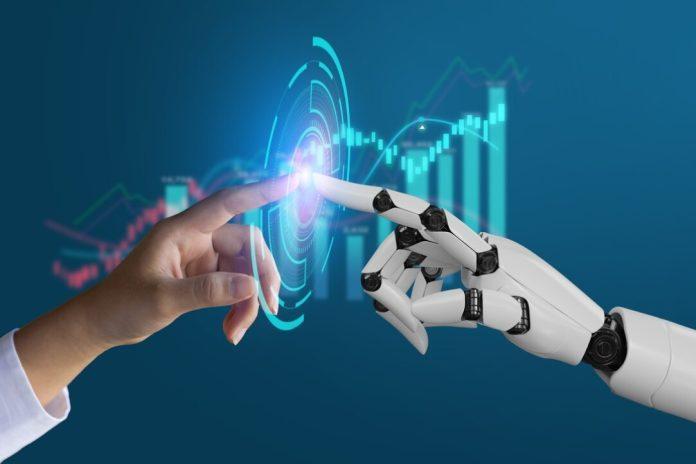Artificial Intelligence in Modern Education
- Home
- Artificial Intelligence in Modern Education

Artificial Intelligence in Modern Education
The Artificial Intelligence in Modern Education course by Utrixaaso explores how artificial intelligence is reshaping the global learning landscape. As education systems evolve, AI technologies are becoming central to teaching, assessment, and student engagement. This course provides educators, researchers, and administrators with the tools and understanding to integrate AI effectively into their learning environments.
The program combines theoretical knowledge with practical applications, offering insights into adaptive learning systems, automated evaluation, and ethical frameworks for educational technology. Whether you are a teacher looking to modernize your classroom or an educational manager aiming to optimize processes, this course offers a comprehensive foundation for understanding and applying AI in education.
Course Objectives
The main goal of this course is to help participants understand the transformative role of AI in education and equip them with the practical skills necessary to implement AI-driven solutions responsibly.
By the end of the course, you will:
-
Understand the fundamental principles of artificial intelligence and its relevance in modern education;
-
Learn to design and manage AI-supported educational models;
-
Gain practical knowledge of tools and algorithms that enhance teaching efficiency and student learning outcomes;
-
Develop the ability to evaluate and address ethical considerations related to AI in academic contexts.
Key Topics
This course covers a wide range of essential topics that connect technology with pedagogy.
1. Personalized Learning with AI
Participants will explore how machine learning algorithms can personalize the educational experience by adapting content, pace, and assessments to each student’s needs. You’ll learn how AI systems analyze learning patterns, predict performance, and create individualized learning pathways that boost engagement and retention.
2. Using Neural Networks for Knowledge Assessment
This section focuses on how neural networks and other intelligent models can assist in evaluating student performance more accurately. You’ll discover how AI can analyze written work, detect conceptual understanding, and support teachers in providing targeted feedback.
3. Automation of Teaching Tasks
Educators spend significant time on administrative and repetitive activities. AI can automate these processes—from grading and scheduling to generating progress reports—allowing teachers to focus on interactive and creative teaching. Participants will learn about AI-driven tools that simplify lesson management and improve workflow efficiency.
4. Ethical Aspects of Using AI in Education
AI raises important ethical questions, including fairness, transparency, and data privacy. This topic examines the challenges of bias in algorithms, responsible data handling, and the importance of maintaining human oversight in education. You’ll learn how to apply ethical standards when implementing technology in classrooms.
Why Take This Course
1. Stay Ahead in Educational Innovation
Education is evolving rapidly, and institutions that embrace AI technologies gain a significant advantage. By taking this course, you’ll understand how AI can be applied to teaching, learning, and educational management in real-world settings.
2. Gain Practical and Transferable Skills
Unlike theoretical overviews, this course focuses on practical skills that can be applied immediately in your professional environment. Participants will work through real examples, case studies, and interactive exercises to reinforce their understanding.
3. Build Confidence in Using Technology
Many educators and professionals hesitate to engage with AI because it feels complex or inaccessible. This course breaks down the concepts into clear, actionable insights—building your confidence in working with data-driven systems.
4. Join a Growing Community of Innovators
Artificial intelligence in education is an expanding field that requires collaboration and exchange of ideas. Completing this course connects you with a network of professionals who share your passion for innovation and learning improvement.
Skills You Will Gain
After completing the Artificial Intelligence in Modern Education course, you will possess a diverse skill set that bridges technology and pedagogy.
-
Analytical Skills — Learn to interpret educational data and draw meaningful insights for curriculum improvement.
-
Technical Understanding — Gain foundational knowledge of how machine learning and neural networks function in an educational context.
-
AI Integration Competence — Develop the ability to evaluate and adopt AI-powered tools to enhance teaching and administrative processes.
-
Ethical Awareness — Understand how to apply responsible AI principles, ensuring fairness and transparency in learning environments.
-
Strategic Thinking — Learn to design sustainable, future-oriented educational systems that integrate AI in meaningful ways.
These skills empower you to act as a bridge between education and technology—making you a valuable contributor to the modernization of learning practices.
Our Approach
At Utrixaaso, we emphasize clarity, adaptability, and real-world relevance. The course is structured to balance conceptual understanding with practical application. Each module includes interactive elements, case discussions, and reflective exercises that allow participants to explore AI’s potential from multiple perspectives.
We believe that effective education with AI is not just about technology—it’s about people. Our approach ensures that learners develop both technical literacy and ethical sensitivity, preparing them to lead innovation responsibly.
Who Should Enroll
This course is ideal for:
-
Educators and teachers looking to implement AI in their classrooms;
-
Educational administrators seeking to modernize institutional processes;
-
Researchers interested in educational technology;
-
Professionals exploring how AI can enhance learning outcomes and management efficiency.
No prior programming or technical background is required—only curiosity and a desire to explore how artificial intelligence can shape the future of education.
Conclusion
The Artificial Intelligence in Modern Education course by Utrixaaso offers a forward-thinking approach to teaching and learning in the digital era. It blends innovation with responsibility, helping participants understand how AI can empower both educators and students.
By completing this program, you’ll be equipped not only with the tools to apply AI in practical ways but also with the insight to shape a more intelligent, ethical, and human-centered educational future.
 Utrixaaso
Utrixaaso